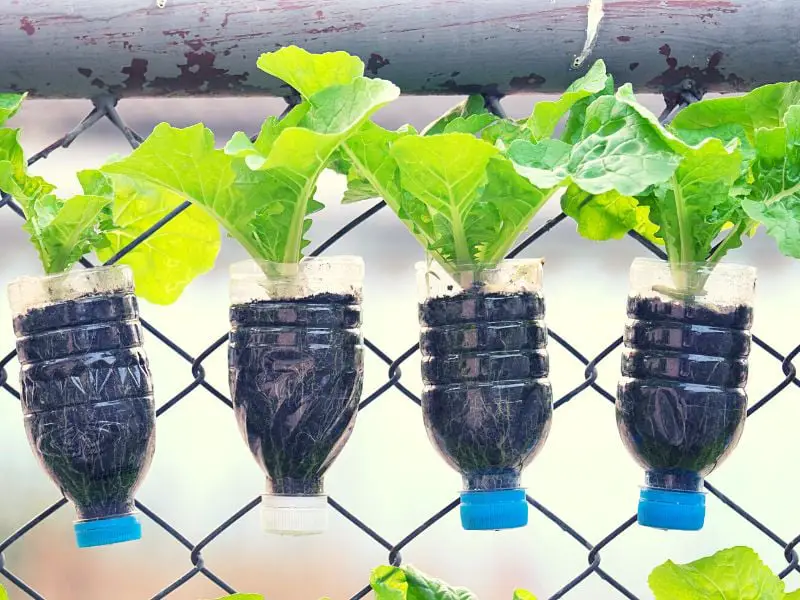Going zero waste can be difficult at first, but anyone can create and maintain a zero waste lifestyle with time and commitment. Being sustainable doesn’t necessarily mean going completely green or giving up the things that make your life worth living. Making small changes can significantly impact the trash that you produce.
In this article, we’ll share some helpful tips on how you can reduce your environmental impact by going zero waste.
What’s a Zero-Waste Lifestyle?
Zero waste is a lifestyle that goes all out to reduce the amount of trash in landfills by minimizing waste in the first place. People who practice zero waste do so by using reusable shopping bags, avoiding disposable water bottles, bringing their containers when dining out, or composting food scraps instead of throwing them in the trash. However you do it, the goal is to minimize your environmental impact by choosing not to produce unnecessary waste.

“The zero waste lifestyle is a journey, not a destination.”
– Trash is for Tossers
Why Living a Waste-less Lifestyle Is So Important?
The Environmental Protection Agency estimates that the ordinary American generates around 5.91 pounds of garbage each year, of which approximately 1.51 pounds are recycled. The EPA also estimates that the typical American generates about 4.40 pounds of daily waste. When that number is multiplied by more than a hundred million, the result is a significant amount of money spent, an excessive amount of fuel and resources utilized, and a considerable amount of garbage produced for each individual.
Take a moment and think about the garbage you make daily, including paper, plastic bags, and water bottles. Consider the coffee mugs you go through and eventually toss away. Consider the paper towels that you use once before throwing them away.
Imagine the packaging with every product you use. Now multiply it by more than one hundred million individuals. Perhaps this explains the iconic garbage island’s existence and the presence of over 1,250 landfills in the United States alone.
People everywhere must realize that change comes from within and through individual effort. So, how can the earth minimize the annual production of one million pounds of waste? Let’s examine these ten straightforward strategies to live a zero-waste lifestyle.
The Menace of Food Waste and Surplus Food Management
Food waste is a colossal component of the waste we generate. Managing and reducing food waste and food scrap is crucial for a sustainable future. Initiatives for redirecting surplus food and preventing edible food from becoming waste can immensely reduce environmental impacts.
Developing systematic approaches to minimize food waste and rerouting surplus food to those in need can not only alleviate hunger but also can conserve resources and reduce greenhouse gas emissions.
The Challenge of Single Use Plastic and Plastic Waste
The production and disposal of single use plastic and plastic waste contribute significantly to environmental degradation. Discarded plastic bags, bottles, and other items contaminate ecosystems and affect wildlife.
A substantial step within the zero waste movement is the movement away from disposable, non-renewable resources like single-use plastics towards more sustainable, reusable alternatives. Reusable containers signify a conscientious choice in this direction, promoting the reduction of plastic waste and fostering environmental wellness.
Material Management and the Circular Economy
Effective material management and embracing a circular economy are critical aspects of a sustainable future. A circular economy emphasizes the importance of using materials and resources in a way that they can be reused or recycled, reducing waste and the depletion of natural resources.
This methodology goes hand in hand with efficient facilities management, essential for optimizing the operational process and managing organic material, raw materials, and other resources responsibly and sustainively. The circular economy and proficient material management aid in waste diversion, reducing reliance on finite resources and mitigating environmental impacts.
Organic Waste and its Sustainable Management
Managing organic waste responsibly is a vital component of a zero waste lifestyle. Organic material, if not handled appropriately, can contribute to environmental issues.
By composting organic waste, we can transform it into nutrient-rich soil, preventing the emission of methane, a potent greenhouse gas, when organic waste decomposes in landfills. It is paramount to promote responsible disposal of organic waste to preserve ecological balance and promote soil health.
Building a Comprehensive Zero Waste Program
Constructing a comprehensive zero waste program requires a multifaceted approach involving waste reduction, recycling, and the responsible management of materials. Institutions and individuals should adopt practices that are aimed at reducing waste, optimizing the use of natural resources, and fostering environmental conservation.
A proficient zero waste program should focus on strategies that minimize waste generation, promote the sustainable use of resources, and encourage the recycling and responsible disposal of waste.
10 Simple Ways to Live a Zero Waste Lifestyle
Living a zero-waste lifestyle requires a lot of planning, dedication, and effort. Anyone can start by following these simple ways.
1. Begin Composting
Composting is the fastest way to reduce the trash you produce in your home by repurposing food scraps into a nutrient-rich soil supplement for your garden or houseplants. All you need to do is add food scraps to your compost bin until it’s complete, then give the bin a good mix with a shovel or a pitchfork until the food scraps break down into a soil-like substance. You can turn the compost every few days until the compost is finished. This way, you’ll reduce the amount of trash you throw once a week to even once every few months.

“Composting is the ultimate act of resourcefulness and sustainability.”
– Rodale Institute
Related: Compostable Bags and Their Environmental Impact, How to Compost at Home
2. Always Bring With You a Reusable Coffee Cup or Water Bottle
Plastics and disposable coffee cups are some of the main culprits of waste today. These materials take years to decompose and never biodegrade. They are then often burned or sent to landfill, where they will stay for hundreds or even thousands of years—leaving behind a big carbon footprint.
Buy a reusable mug or water bottle to keep with you wherever you go. This will encourage you to drink more water throughout the day and limit the number of disposable cups you throw away. In addition, consider purchasing reusable shopping bags to avoid taking plastic bags with you when you shop.
3. Make Your Cleaning Products
Cleaning products are often less toxic than store-bought products since many contain harmful chemicals like bleach, ammonia, phosphates, sodium lauryl sulfate, etc. You can easily make cleaning products using ingredients in your kitchen, such as baking soda, vinegar, lemon juice, castile soap, borax, essential oils, etc.
4. Learn to Reuse
Learning to reuse is very important to our planet as it helps decrease waste dumped into landfills. Reuse reduces waste and helps create a reduced carbon footprint, as reusing items means fewer new materials need to be mined to make new items.

“Reuse is the ultimate way to reduce waste and conserve resources.”
– Zero Waste Scotland
Therefore, reusing can help save the environment by reducing our reliance on fossil fuels and other non-renewable resources. So how can you learn to be more green? Well, you can start by keeping all your empty glass jars and bottles for storage. You can reuse glass jars for all sorts of things, from storing food items to organizing your makeup brushes to making your candles. You can also recycle paper items by creating handmade greeting cards from old magazine pages or making paper flowers from old newspapers.
5. Buy What You Only Need
Buy what you only need. For example, buying a pack of bananas only to eat one or two won’t help you cut on your trash. Do you need that new dress? Probably not! Instead, go shopping at second-hand stores and find quality used clothes that are gently worn and still in good condition. If you love a particular piece of clothing and it no longer fits, consider donating it to a charity so that someone else can enjoy it instead.
6. Give Up Single-Use Items
Giving up using single-use items can help reduce your environmental impact significantly. Single-use items are products that can be used only once before they are thrown away. Examples include plastic water bottles, straws, utensils, styrofoam containers, plastic bags, plastic bottles, takeout containers, etc. By giving up these items, you will reduce your trash significantly.
7. Borrow Instead of Buying
Try borrowing things like books from the library instead of buying them new from the store. Or borrow tools and gardening supplies from your friends instead of buying them brand new.
“The sharing economy is all about borrowing instead of buying, and it’s changing the way we think about ownership.”
– Rachel Botsman
Renting movies online rather than going to the store is another way to avoid unnecessary purchases. Informally, you can contact friends, relatives, coworkers, or neighbors to see whether they can lend you the item you need.
8. Being in a Digital Age, Stop Buying Anything That’s Paper
In the digital age, stop buying anything paper-based, including books, magazines, newspapers, and more. Instead, opt for ebooks that take up no physical space at all.
Moreover, Instead of printing out documents at home or the office, you can opt to use cloud apps to store files online instead.

9. Reduce Travel-Related Waste
Travel-related waste is one of the biggest contributors to the planet’s pollution problem as planes generate carbon dioxide in the air and release more harmful emissions when landing and taking off. Therefore, reducing travel-related waste can help reduce pollution and save our environment.
10. Choose to Support Brands That Don’t Use Plastic in Their Goods
This year, there has been a massive rise in the number of brands and businesses taking steps to scale down the use of plastic in their goods. From major supermarkets to small independent retailers, more and more outlets are eliminating plastic packaging and disposable items from their stores.
“By supporting brands that don’t use plastic, we can send a message to the entire industry that we demand more sustainable options.”
– Plastic Pollution Coalition
Choose to support brands that don’t use plastic in their goods. The more people boycott these brands, the more they will realize that people will no longer buy their products if they know they use harmful chemicals. It is worrying that several retailers and brands still use plastics despite knowing the damage they can cause to the environment. Plastic is a danger to both the environment and human well-being.
Frequently Asked Questions (FAQs)
Author’s Note
You can do several things to help the planet by reducing the ever-growing trash production. Doing these things can significantly reduce your trash as individuals and help save our world for future generations to enjoy.


1 thought on “Live a Zero Waste Lifestyle With These 10 Tips”